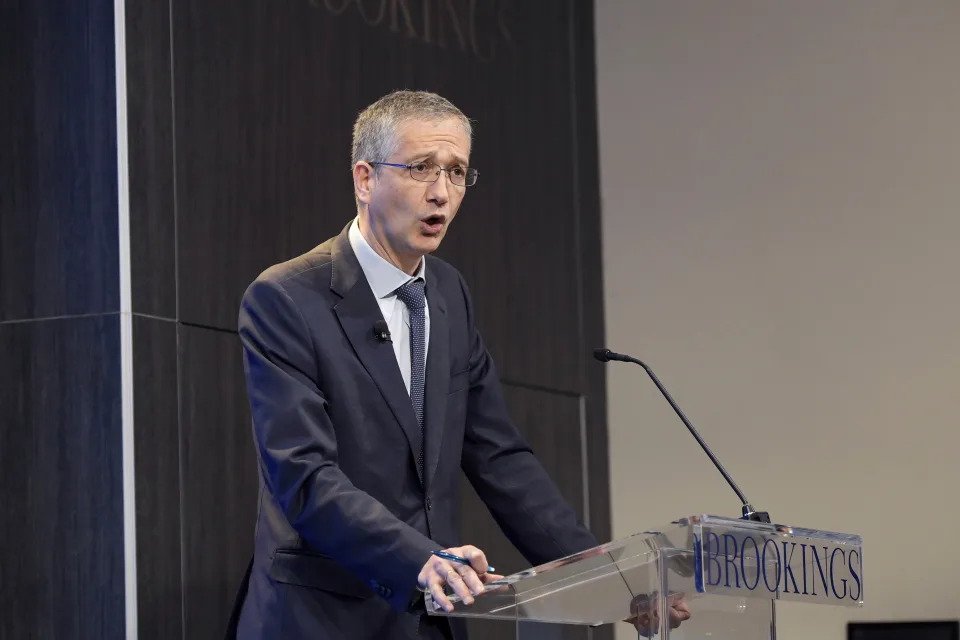The governor of the Bank of Spain. Pablo Hernández de Cos, asked the Spanish banking sector this Monday to strengthen its provisions in the face of the uncertainty that may arise from the bankruptcy of two entities in the United States and the bailout of a third last March.
“Profits in 2022 have been very significant, and we ask banks not only to maintain provisions, but to increase them to be in a better position to face possible downward revisions in growth,” he said during an event at the Brookings Institution in Washington.
Hernández de Cos insisted that the situation of the sector in Spain is similar to that in Europe, and that the risk of contagion from the U.S. banking uncertainty is very limited thanks to the robustness and liquidity of Spanish banks.
The Governor defended that this assessment is compatible with the perspective that the macro scenario is increasingly complicated, also for banking, and therefore called for taking advantage of the short-term benefits generated by the increase in interest rates in Europe to strengthen the sector.
On March 16, the European Central Bank (ECB) decided to raise its interest rates by half a point, to 3.5%, because inflation in the euro zone is still very high, and announced that future decisions will depend on economic and financial data.
Headline inflation in the euro zone slowed to 8.5% in February, but core inflation rose to 5.6% and, according to the agency’s forecasts published on the same day, the former will moderate this year to 5.3% and the latter to 4.6% on average.
During his talk, Hernández de Cos reviewed the ECB’s forecasts and warned of the enormous uncertainty surrounding inflation due to the increase in core inflation versus the slowdown in the headline rate.
The panic over the banking crisis in the United States had an impact in Europe and almost wiped out the Swiss bank Credit Suisse, which finally had to be acquired by its competitor UBS after the crisis of confidence that was sinking its share price in the market.

